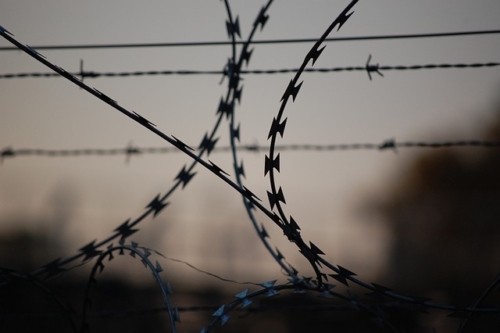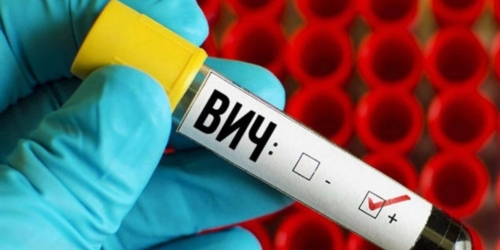Saskatchewan court dismisses former Roughrider Smith's appeal
REGINA — The Saskatchewan Court of Appeal dismissed former Saskatchewan Roughrider Trevis Smith’s appeal of his conviction on two counts of aggravated sexual assault.
Smith was convicted in February 2007 of having unprotected sex with two women without disclosing to them that he is HIV-positive. He filed an appeal within weeks of his conviction.
Smith’s lawyer, Clemente Monterosso of Montreal, argued in the Saskatchewan Court of Appeal in late April that his client had been denied at least two rights during his trial — the right to be presumed innocent and the right to remain silent.
However, Saskatchewan Court of Appeal Justices Gary Lane, Georgina Jackson and Darla Hunter said in their decision released on Wednesday morning that it was appropriate that the trial judge found Smith guilty.
“We are unable to see any basis for interfering with the trial judge’s conclusion,” wrote Lane.
The decision also said it was “open to the trial judge to disbelieve Smith and to find the defence evidence did not raise a reasonable doubt.”
The three concurred they were satisfied that no error was made when the trial judge, Provincial Court Judge Kenn Bellerose, believed the two complainants and convicted Smith based on their evidence.
Smith’s testimony during his trial differed greatly from the complainants.
Smith testified that he had not had sex with one of the complainants after learning of his HIV status. Bellerose didn’t believe him.
In Smith’s appeal, it was argued that the judge needed to listen to Smith and consider his testimony as part of the total evidence presented. Jackson, Lane and Hunter said in their decision that Bellerose had considered all the evidence and concluded that he didn’t believe Smith. The evidence supports that conclusion, they state.
As for the second complainant, Smith said he had protected sex with her, while she said protection wasn’t used.
Again in Smith’s appeal, it was argued that Bellerose held Smith’s testimony to a different standard than that of the complainant. This in part violated Smith’s right to silence, it was argued, since Bellerose relied on evidence from a public health nurse and the police to assess Smith’s credibility.
Jackson, Lane and Hunter said again that Bellerose reviewed all the evidence in deciding Smith’s credibility on this point. Bellerose also explained extensively why he believed the complainant, the three state.
Monterosso has said that Smith is willing to take the case to the Supreme Court of Canada.
Smith is serving a six-year sentence at the Prince Albert Penitentiary. He is more than a year into his sentence and will be eligible for parole in February. He can apply for day parole this fall.
Lawyer for HIV-positive former CFLer seeks new trial on sex assault charge
REGINA — The judge who convicted a former Canadian Football League player of knowingly exposing women to HIV focused too much on the testimony of the victims, while giving the accused’s defence short shrift, the Saskatchewan Court of Appeal heard Wednesday.
Lawyer Clemente Monterosso was in front of the province’s highest court arguing that Trevis Smith should be given a new trial. Smith was convicted of two counts of aggravated sexual assault last year after a judge found the former Saskatchewan Roughrider linebacker had unprotected sex with two women – one from Regina and one from British Columbia – and didn’t inform them of his HIV infection.
Monterosso’s central argument focused on Smith’s right to be presumed innocent until proven guilty of the charge.
The lawyer attacked the way provincial court Judge Kenn Bellerose’s decision dealt with the evidence from the Regina woman before it dealt with Smith’s testimony. In doing so, Monterosso contends the trial judge decided Smith’s victims were credible before he decided not to believe Smith’s testimony.
“He already made up his mind before listening to the defence,” Monterosso told the three-judge panel. “Once this is done there is absolutely no presumption of innocence for Mr. Smith – he is guilty as charged.”
But Crown lawyer Bev Klatt argued Bellerose contrasted the victims’ testimony against Smith testimony throughout his decision. In the end, Klatt said, the judge decided Smith simply wasn’t credible.
“He’s looking at both all throughout,” Klatt argued.
Smith, an Alabama native who was arrested and charged in 2005 while still a member of the Roughriders, was sentenced to 5 1/2 years for the sexual assaults and an additional six months for various bail violations to which he pleaded guilty.
He is currently serving his time in Prince Albert, Sask. He is eligible for parole in February. His statutory release date after serving two-thirds of his sentence is February 2011.
At trial, the B.C. woman said she and Smith had unprotected sex several times after he found out he was HIV-positive in November 2003, but he never told her he had the virus – even when Smith became aware she wanted to donate a kidney to her ailing father.
Smith testified he told the woman about his condition in August 2004 and that the two used condoms during sex from that point.
The Regina woman testified she had a casual sexual relationship with Smith. She said Smith denied rumours that he was HIV-positive and the two had unprotected sex on three separate occasions.
Smith denied having sex with the Regina woman after he tested positive.
Neither woman had tested positive for the disease.
Smith’s testimony at trial contradicted not only the evidence of the victims, but previous statements he gave to police and public health nurses and even an agreed statement of facts entered by his lawyers at trial. Bellerose rejected virtually all of Smith’s testimony, at time referring to him as “totally unbelievable” at points.
Monterosso also argued Wednesday that Bellerose’s use of the police statements in deciding Smith’s credibility was an error because Smith had the right to remain silent with police and could say as little or as much as he wanted.
But Klatt pointed out that Smith gave a voluntary statement to police and was advised of his rights before they talked to him.
The appeal court reserved its decision.




